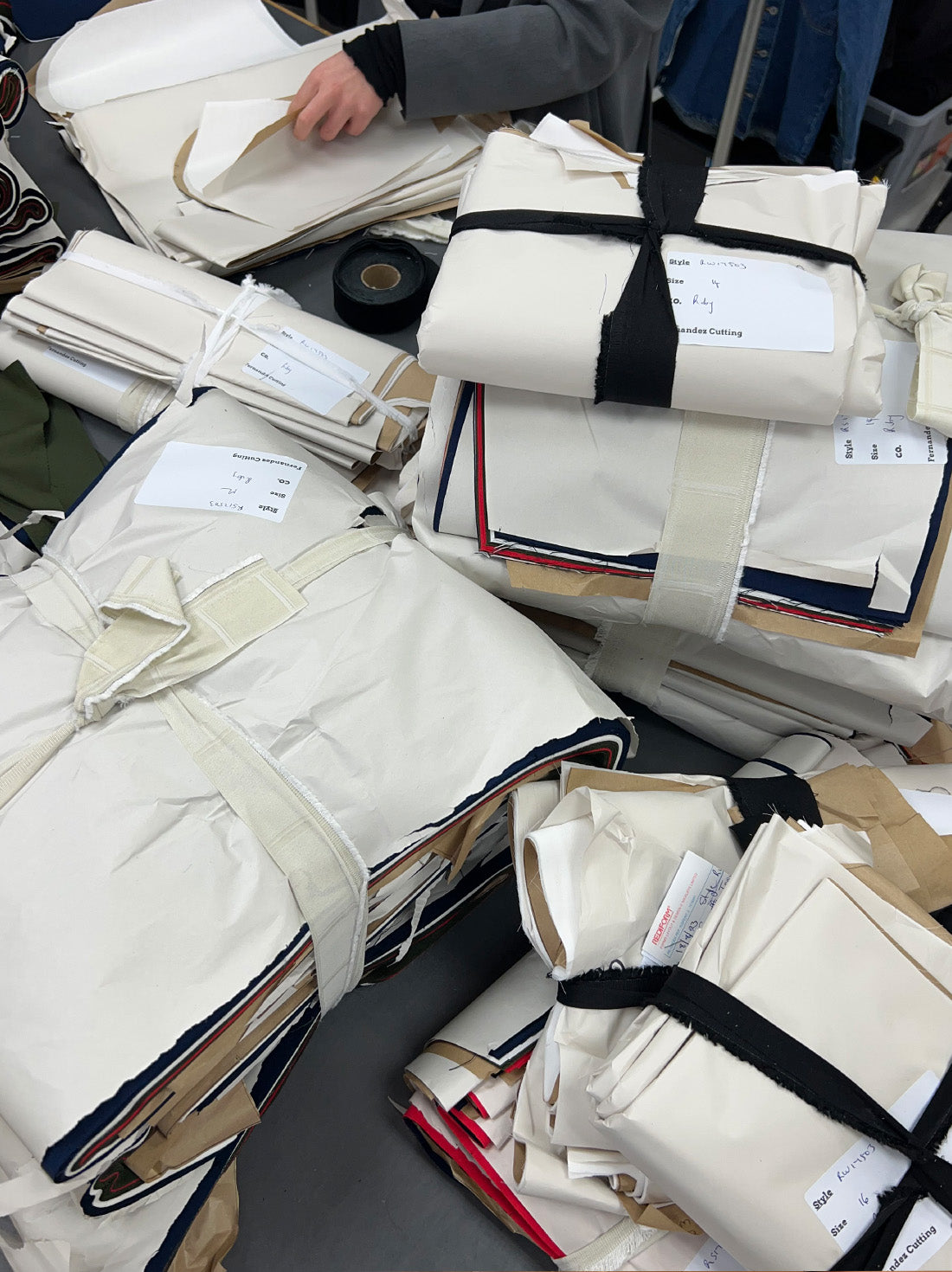Kaarina writes on the destructive rhetoric surrounding bodies that permeates our society, and the importance of accommodation for all within the fashion space.
"The biggest change that needs to be made is a mental one. We need to dismantle this idea that someone’s body is a reflection of their moral character. And we need to stop feeling entitled to comment or pass judgement upon another person’s physical appearance. Maybe they have a thyroid condition. Maybe they just like pizza. Either way, frankly, it’s none of your goddamn business. We all deserve to be seen, loved, and respected. And we all deserve to have access to cute, affordable, and sustainable clothing options"
I grew up in an era of popular culture where eating disorders were glamourised. ‘Heroin chic’ was the aesthetic du jour, Kate Moss’ infamous quote was tossed around schoolyards with dangerous nonchalance. Female celebrities were relentlessly hounded for being ‘too fat’ at a size 12 (far below the national average in Aotearoa), and then mocked when they inevitably developed eating disorders. One of my earliest memories is overhearing a group of women in a hairdressers saying that Kate Winslet needed to lose her baby fat in the Titanic. She was a US size 6. I was five years old.
It's hard to quantify the kind of damage this rhetoric does to young people. I will say that I can’t even count on both hands the number of friends I have who either currently or have previously struggled with disordered eating or body dysmorphia. I count myself among them. We were raised with the mentality that ‘fat’ was equal to ‘lazy’ – weight became a moral issue, rather than a medical one. And nothing drives this home quite like going to a clothing store and not being able to find anything that fits you. As if you are being punished, made to feel unworthy of having nice things. I remember many times going shopping with schoolfriends as a teenager, and there would just be nothing for me. I would hover awkwardly in the accessories section, holding back tears, while my straight-sized friends tried on mini-skirts and crop tops to their hearts content. I told myself that I didn’t deserve to have nice clothes, because I just needed to get my life together and be skinny, then everything would be fine. Unsurprisingly, though it may come to a surprise to people like Louise Wallace, making fat people hate themselves doesn’t result in weight loss. It often has the opposite effect. And if your argument against the existence and happiness of fat people is that it is “unhealthy”, please explain to me what is healthy about encouraging self-loathing and cruelty?
It is impossible to speak to the issues facing fat/plus-size people today, without looking at the origins of such discrimination. Because it is not an inherent human trait, to look down on fatness. There are well-documented and multitudinous times throughout human history where thinness was abhorred and curves were coveted, as a sign of wealth or status. It’s almost as if beauty standards are subjective, and used to uphold whatever system they are serving under. “Fearing the Black Body: The Racial Origins of Fat Phobia”, by Sabrina Strings, is an absolute must read. It centres on American history, and the experience of black women in America, but Strings’ narrative rings familiar for those of us in Aotearoa as well. She shows how the body we idealise for women, waif-like and slender, is rooted in racist and classist ideals. Femininity should not be the sole property of thin, wealthy white women. Nor should fashion.
Every year there are more and more brands extending their sizes ranges beyond the “standard” 6-16. We still have a long way to go – in the words of fat fashion icon MahMah Timoteo, we don’t stop until every body is accommodated. It really is that simple. I would love to see the fashion industry evolve to a place where every person is able to find cute, fun, affordable, comfortable, and sustainable clothing options. Fashion should be about art, creative expression, dressing up and having fun. No one should be made to feel uncomfortable or unwanted or undeserving when they’re just trying to buy some clothes.
Written by Kaarina Rangi Parker, Ngāpuhi


























